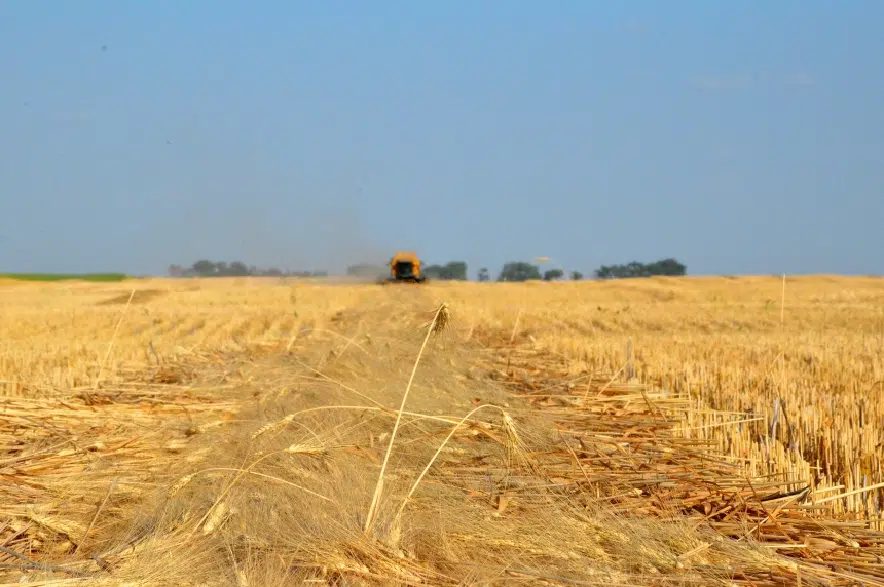Harvest in Saskatchewan is now 82 per cent complete, well ahead of the five-year average of 64 per cent and the 10-year average of 62 per cent.
That’s according to the weekly crop report from Saskatchewan’s Ministry of Agriculture. The report said producers took advantage of another dry week to complete another big chunk of the harvest work, particularly on oilseed crops, but are hoping for some significant rainfall after harvest is complete.
Work is furthest along in the southwestern parts of the province, where 97 per cent of the crop is already in the bin and only a few acres of flax remain. The west-central region isn’t far behind at 92 per cent, followed by the southeast (79 per cent), the northeast and northwest (both at 75 per cent), and the east-central region (66 per cent).
When it comes to individual crops, the ministry said the harvest of fall cereals, canary seed, peas and lentils is complete for 2023.
Meanwhile, Saskatchewan’s mustard harvest is 97 per cent complete, followed by durum (94 per cent), barley (92 per cent), spring wheat (88 per cent), chickpeas (87 per cent), oats (79 per cent – a jump of 21 per cent from the last report), soybeans (47 per cent), and flax (39 per cent).
“Minimal rain was seen this week, with the Stoughton area receiving the most rain at 10 (millimetres),” the ministry reported. “The lack of significant rain led to topsoil moisture once again decreasing.”
For cropland, the topsoil moisture level was rated at just 25 per cent adequate, 49 per cent short and 26 per cent very short. Hay and pasture land was even drier, with just 20 per cent rated at adequate moisture, while 49 per cent was short on moisture and another 31 per cent was rated very short.
“Crop damage continues to be caused by drought conditions and grasshoppers. This week crops were also damaged by light frosts, wind and wildlife,” the report read.
“Producers are currently busy with harvest, spraying post-harvest weed applications, working their fields and hauling grain. Many are also hauling bales, preparing feed for winter and marketing cattle.”
The ministry noted that harvest can be a very difficult, busy and stressful time for farmers, and producers were reminded to take safety precautions, especially when it comes to fire mitigation and work near power lines.
The toll-free Farm Stress Line is also available to provide support to producers who are struggling, the ministry added.











